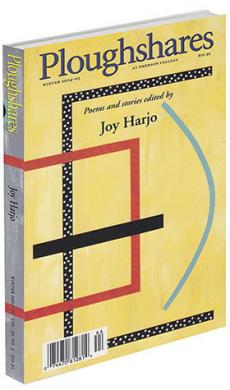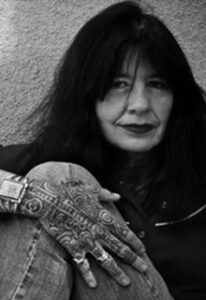Introduction
I used to think a poem could become a flower, a bear, or a house for a ravaged spirit. I used to think I understood what it meant to write a poem, and understood the impetus to write, and even knew a little something of the immensity of the source of poetry. I was never the scholar and approached the study of poetry like a fool in love with the moon. I mean, I am a reader of poetry and know a little something about the various indigenous roots of American poetry. I know even more about European elements of verse, because it was all we were taught in public schools, hammered as the “truly civilized poetry.” I had to stand quite a distance from the earth, beyond conquest politics, to see the foolishness of this assertion. To say one form of poetry ranks above all others is to insist on a hierarchy of value that arbitrarily rules that a rose has more value than an orchid because it is a rose.
It was in song that I first found poetry, or it found me, alone at the breaking of dawn under the huge elm sheltering my childhood house, within range of the radio, of my mother’s voice. I used to think that the elm, too, was poetry, as it expressed the seasonal shifts and rooted us. Ever since, I have given myself over to poetry. Poetry, like the earth, was once decreed flat, then round. I declare it as a spiral in shape and movement. Each strand of poetry curls from classical form and springs unruly forms that often overtake and become classical forms as the tendrils of songs coil into the future.
I used to think a story would house a beginning, middle, and end and could be contained within the covers of a book, then given a home in the heart. Or that a story in any of its forms could lead me safely away from myself, show me a world so different I would return to gaze at my known universe with a newly shining mind. I believed that myth was alive and was the mothering source of stories, poetry, and songs, and within this field I would find the provocative answers to the riddle of being a human without wings or gills, or directions to a map for a lost wanderer. I was looking for vision, for the powerful and startling and subtle strategies of language, pattern, style, character, and voice that would satisfy and, even more, inspire. I have given myself over to the making of stories, and even as I found them or they located me, I was ecstatic, and then bereft. For then there I was again at the same place I started, the beginning of a page or a voice. I garnered hope, but hope is wistful and empty and
is like water in our hands.
I confess. At this moment in the time and context of being a writer in America, I don’t know whether I believe or know anything that I once thought I believed or knew about our art of truth-telling, of singing, of constructing the next world as a story or series of stories that we will eventually inhabit, as will our children and their children. Maybe we’ve all been through this before, but it’s another version and we’re in it deep. I used to imagine writing as a ladder leading us from the blind world into the knowing world, but now to imagine a ladder means to imagine a land or a house on which to secure a ladder. For many of us in these lands now called America, imagining this place has been a tricky feat, because there is no place that hasn’t or won’t get stolen, polluted, or destroyed, and for all of us now planted here, the foundation is shaky, because though it is strong with vision, the country was founded on violent theft. But this is what we have, who we are, here, together. And we can use the
fire still burning there to destroy this place, or build it anew with bricks made of the trash, with fresh, shining inspiration. The elm is still growing there in that yard.
Maybe the ultimate purpose of literature is to humble us to our knees, to that know-nothing place. Maybe we here on this planet are a story gone awry, with the Great Storyteller frantically trying out different endings. Whatever the outcome, we need new songs, new stories, to accompany us wherever we are, wherever we go. That’s the power contained in a book, journal, or magazine that you can carry in your hands. So, these stories, poems, and songs are offered as such, as gifts for challenge, for inspiration, for sustenance.

